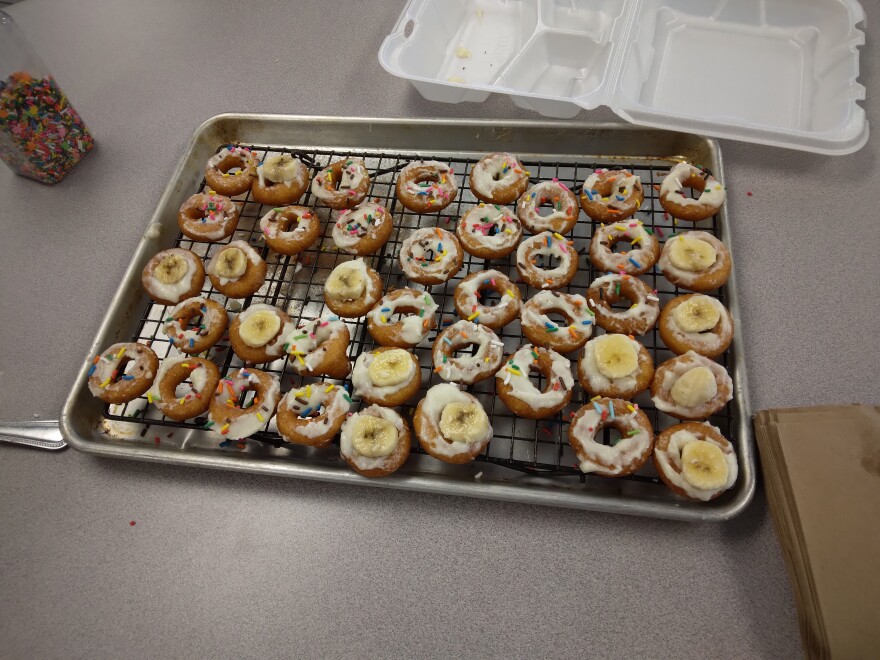The Youth Emergency Services, or YES House in Gillette has created Holy Moly Donuts. It's part of the non profits intro to business course. The organization works to assist youth and families in crisis and provides resources to keep them together whenever possible. They offer residential and day treatment options in addition to educational opportunities, like this class.
“[We] started back in the fall of 2022, so it started [back] in September, October, and we had a therapist that had had given them the doughnut recipe after they had [thought of] the idea of doughnuts for their intro to business, money 101 project,” said Ryan Anderson, Executive Director of the YES House. “We were trying to get [the name] to catch on when people try and say that [the doughnuts are] good. We're like, ‘You got to say, Holy Moly.’ Because the doughnuts are so good you'll say ‘Holy Moly.’”

Their operations took off when students also expressed interest in a doughnut business. An order form was created, and the idea began to spread amongst the staff of the facility. After formally getting the YES House board’s approval of the idea, staff proceeded to work through the health standards that are necessary for the business.
“It's fun to see the kids get excited about something and be passionate about stuff because there's a lot of reasons to find negative[s] and things, but this has just been a really cool positive experience,” he said. “And they've [the students have] really enjoyed it.”
Approval was also granted to upgrade the operation when a $1,200 industrial doughnut maker was purchased. It only makes mini doughnuts, unlike the previous home doughnut maker, which could make three different sizes. The business brings in about $100/week and has raised enough money to pay the board back for the doughnut maker and build a reserve account. Students are tasked with focusing on different areas of the business, including the money aspect, sales, and delivery.

The mini doughnuts resemble onion rings once they’re done with the frying process. Toppings, such as sprinkles, sugar, and even small slices of banana, are placed on top after being emptied into large trays.
“They [the staff and students] get them piping hot and fresh, and so that's a lot of fun. The staff enjoy getting those,” Anderson said. “Sometimes they sold so many that were like, ‘Okay, we're going to start a bit earlier, because we may not have enough time to make all these,’ but we had some phenomenal salespeople, and they, our staff, were extremely supportive.”

Exposure of the program through local media has increased the awareness of popularity of the doughnut-making operation. In addition to making them for staff and students at the YES House, Anderson and teacher Paul Utzman were taking three of the students that had prepared a batch of several hundred mini doughnuts to the local senior citizens center. Orders for the doughnuts are taken on Wednesday and delivered on Friday. There were about 10 to 12 students participating in the program last quarter and 15 this quarter.
Orders of 100 doughnuts or more are becoming more common, which are packaged in small Styrofoam soup bowls. Six doughnuts are placed in each plastic container with a lid that’s labeled with the contents, such as if they have sugar, sprinkles, or banana. Larger orders are placed in Styrofoam containers with similar labeling.

“Because the class is just one quarter and we didn't want to end up in a situation where it wasn't going to build up [to] something that wasn't going to be sustainable,” Anderson said. “But at this point, now, it's, it's kind of taking on a life of its own.”
The doughnuts cost approximately eight cents each to make with a profit margin of 82 percent, figures that were calculated in the intro to business class. There’s plans of making the program an after school project and even taking their operation on the road in the form of a food cart or truck to service various events in the community. There’s a desire to make this happen if conditions prove favorable, Utzman said.









